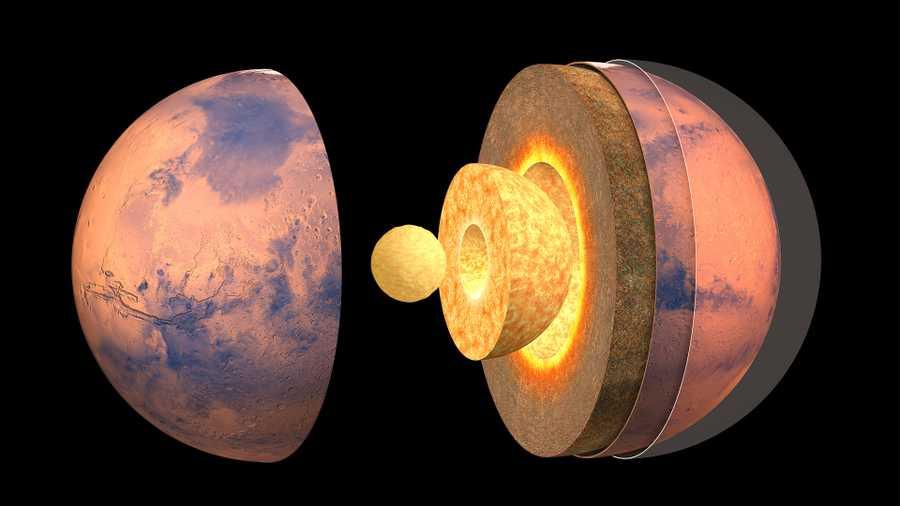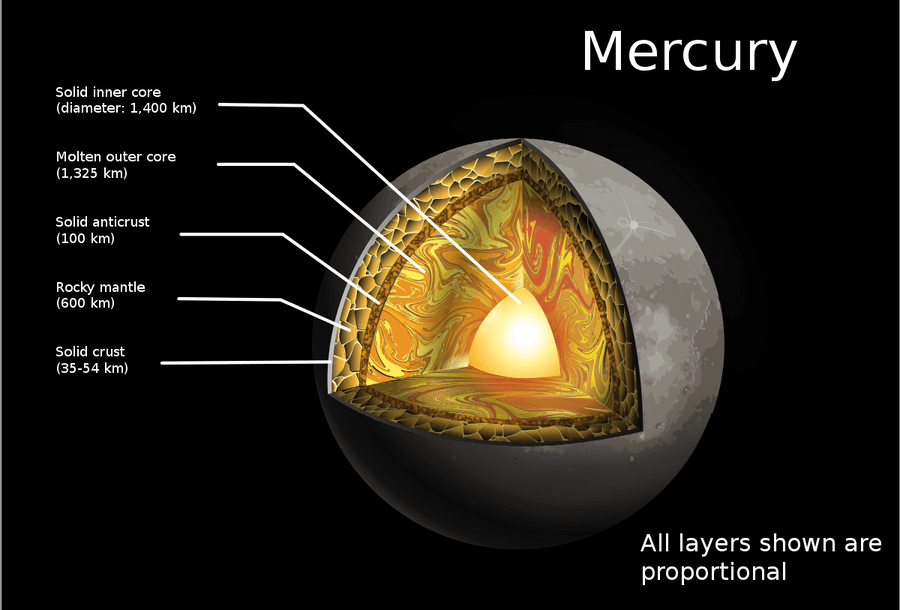Structure
Earth is composed of four main layers, starting with an inner core at the planet's center, enveloped by the outer core, mantle and crust.
The inner core is a solid sphere made of iron and nickel metals about 759 miles (1,221 kilometers) in radius. There the temperature is as high as 9,800 degrees Fahrenheit (5,400 degrees Celsius). Surrounding the inner core is the outer core. This layer is about 1,400 miles (2,300 kilometers) thick, made of iron and nickel fluids.
In between the outer core and crust is the mantle, the thickest layer. This hot, viscous mixture of molten rock is about 1,800 miles (2,900 kilometers) thick and has the consistency of caramel. The outermost layer, Earth's crust, goes about 19 miles (30 kilometers) deep on average on land. At the bottom of the ocean, the crust is thinner and extends about 3 miles (5 kilometers) from the sea floor to the top of the mantle.
13
3 reads
CURATED FROM
IDEAS CURATED BY
I'm passionate about helping people live their best lives. I'm a lifestyle coach & burnout coach.
The idea is part of this collection:
Learn more about technologyandthefuture with this collection
The differences between Web 2.0 and Web 3.0
The future of the internet
Understanding the potential of Web 3.0
Related collections
Similar ideas to Structure
Structure
Mars has a dense core at its center between 930 and 1,300 miles (1,500 to 2,100 kilometers) in radius. It's made of iron, nickel, and sulfur.
Surrounding the core is a rocky mantle between 770 and 1,170 miles (1,240 to 1,880 kilometers) thick, and above that, a crust made of iron, magnesiu...
Structure
Mercury is the second densest planet, after Earth. It has a large metallic core with a radius of about 1,289 miles (2,074 kilometers), about 85 percent of the planet's radius.
There is evidence that it is partly molten, or liquid. Mercury's outer shell, comparable to Earth's outer shell (c...
Structure
Venus is in many ways similar to earth in its structure.
It has an iron core that is approximately 2,000 miles (3,200 kilometers) in radius. Above that is a mantle made of hot rock slowly churning due to the planet's interior heat.
The surface is a thin crust of rock that bulges and...
Read & Learn
20x Faster
without
deepstash
with
deepstash
with
deepstash
Personalized microlearning
—
100+ Learning Journeys
—
Access to 200,000+ ideas
—
Access to the mobile app
—
Unlimited idea saving
—
—
Unlimited history
—
—
Unlimited listening to ideas
—
—
Downloading & offline access
—
—
Supercharge your mind with one idea per day
Enter your email and spend 1 minute every day to learn something new.
I agree to receive email updates


